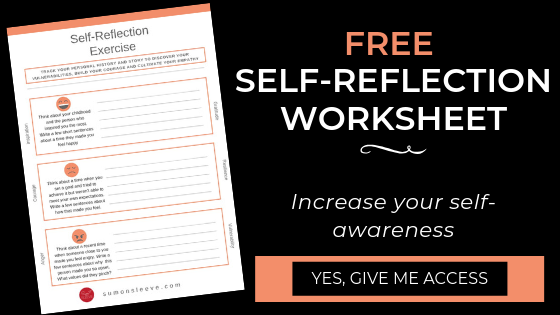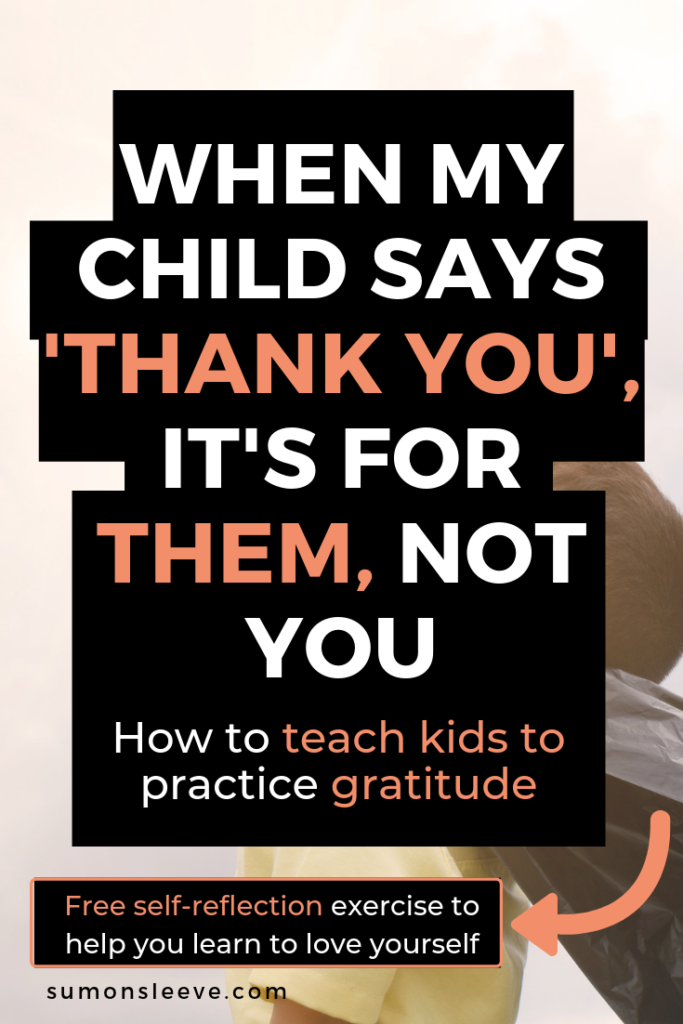EPISODE 26: WHEN MY CHILD SAYS THANK YOU, IT'S FOR THEM, NOT YOU
How can we make sure our children understand and practice gratitude?
It’s about going beyond getting them to recite the words, ‘Thank you.’
A stranger holds the door for you…
Your mom babysits so you have can have a date night with your partner…
Your sister gives you that book you’ve been dying to read…
Your coworker says your new haircut looks fabulous…
What do we say?
Thank you.
Why do we say those words?
Maybe they fly out of your mouth without thought?
It’s a habit like how when you go to the theatre and the cashier tells you to enjoy the show as they hand you your ticket and you say, “Thanks, you too.” But then you’re like wait a sec…
Maybe you’ve been taught since you were little that it’s impolite not to say it? Your parents would scold you every time you didn’t?
It’s like you get a little electric shock every time someone does something or buys something for you and you have to utter those two words.
Or maybe you don’t want others to think you’re ungrateful and unappreciative?
Recently, I started teaching my daughter the words thank you, which in Cantonese, there are two types:
多謝 (dòjeh) – for something given 唔該 (m̀hgòi) – for a service
We’ve all heard of those bratty, rotten, spoiled kids who don’t say please or thank you and they’re just the worst right?
I mean, what’s happening to society?
Kids these days don’t have manners nowadays.
No parent wants to be THAT parent. So we instill these words into them based on what society perceives as appropriate and righteous.
But does a kid who says ‘thank you’ really mean they’re a better kid than a kid who doesn’t?
I think it all depends on why they’re saying thank you.
Growing up, I was taught to say thank you to appease others, to avoid consequences and to ensure others saw me in a certain way.
All those reasons didn’t teach me a single thing about gratitude.
I didn’t understand what this was until I was an adult even though I was saying thank you all my life.
When we become mindful of the blessings that surround us on a regular basis, that’s when gratitude becomes a practice that benefits our own happiness.
And saying thank you to someone is a reminder to ourselves that humanity is good and that kindness exists in the world despite all the darkness (like the injustice we see on the news or when we experience tragedy).
That not everyone is a corrupt politician, a murderer, sex trafficker or child predator etc.
So when we teach our kids this, that when they say thank you, it’s really for them and not for us or the person they are thanking, it makes them appreciate the world more, teaching them to savour good experiences and feelings, manage adversity and cultivate strong relationships.
That when an Auntie buys a gift for them or when a friend shares a toy with them…they should be thankful that people like that exist in their life, people who love and care for them, people who are kind and good.
And when we say thank you to our kids, we should be telling them the same thing, that we’re saying those words for ourselves because we are grateful to have them in our lives, for doing or giving whatever they just did, as a reminder to ourselves that they bring positivity, hope and light to our lives (even when they stress the shit out of us sometimes)
So eventually, as a society, thank you isn’t a social expectation but it becomes a real practice of gratitude.
When someone says ‘thank you’ to me, I’d want them to say it because they are grateful for my service or gift, not because they’re trying to meet social expectations.
I’d feel better knowing I helped them practice gratitude for the day rather than them trying to please me.
With that said, thank you for watching this video. If you want to thank me, it would mean the world to me if you shared this with a friend.
When you say thank you, why do you do it?
Let me know in the comments below.





